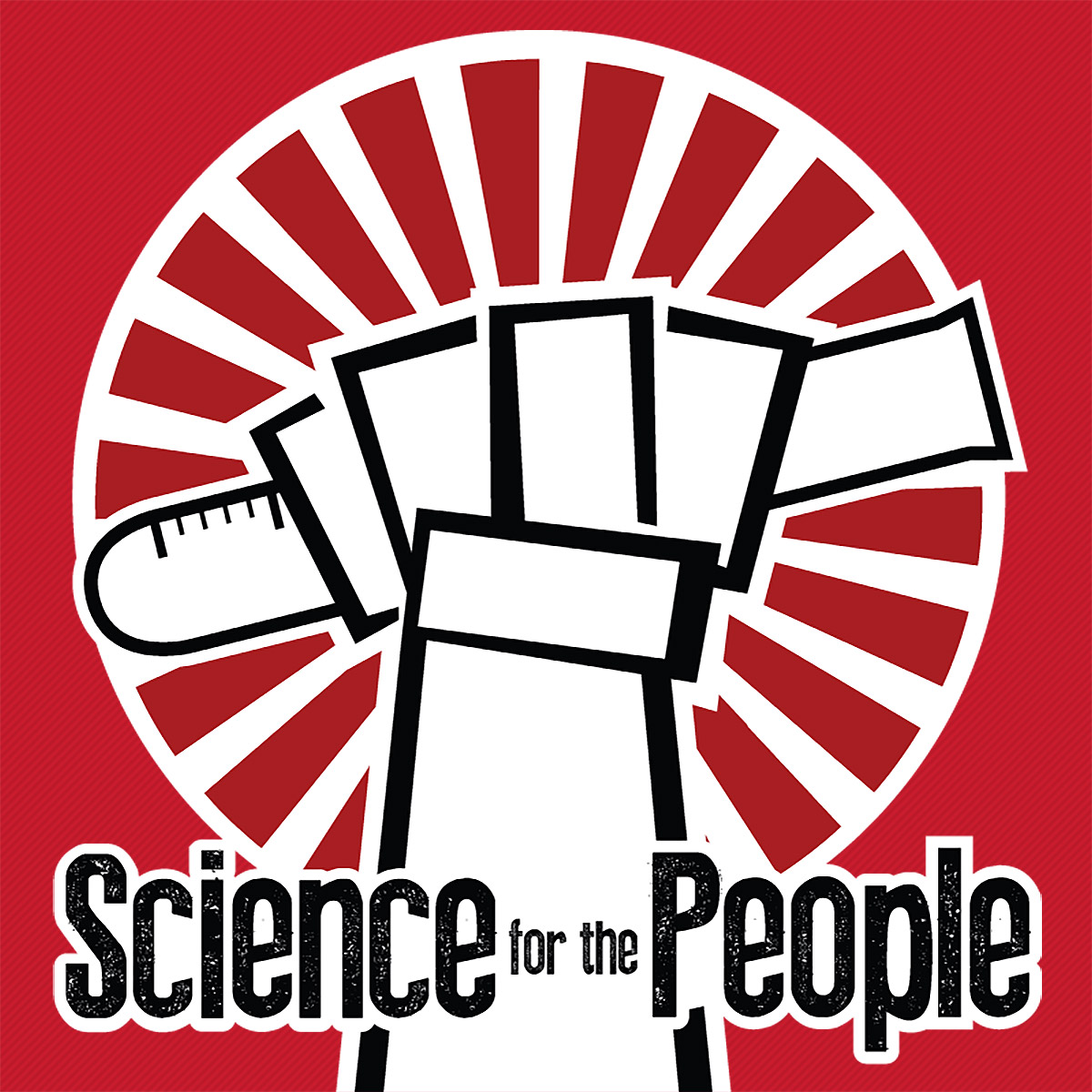

Science for the People
Rachelle Saunders, Bethany Brookshire, and Carolyn Wilke
Science for the People is a long-format interview podcast that explores the connections between science, popular culture, history, and public policy, to help listeners understand the evidence and arguments behind what's in the news and on the shelves. Our hosts sit down with science researchers, writers, authors, journalists, and experts to discuss science from the past, the science that affects our lives today, and how science might change our future.
Episodes
Mentioned books

Feb 12, 2016 • 60min
#356 Insects En Masse
This week we're looking at two types of insects that have made their homes among us in our cities, and are almost always found in large groups and colonies. We'll speak with Dr. Corrie Moreau, an Associate Professor/Curate at the Field Museum of Natural History in Chicago, about the colony behaviors of ants. And we'll talk with Richard Schweid, a journalist and documentary reporter, about his book The Cockroach Papers: A Compendium of History and Lore".

Feb 5, 2016 • 60min
#355 Superstorm (Rebroadcast)
This week, we're revisiting a previous episode, exploring the evolving frontier of extreme weather, and how it's influenced by our warming planet. We'll talk about the largest Atlantic storm system ever recorded with writer Kathryn Miles, author of "Superstorm: Nine Days Inside Hurricane Sandy." And we'll talk about the relationship between climate change and hurricane strength and frequency with Christopher Landsea, Ph.D, Science and Operations Officer at NOAA’s National Hurricane Center.

Jan 29, 2016 • 60min
#354 HIV and AIDS: Updated and Revisited
This week, we've brought together a panel of experts to talk about the history of HIV/AIDS, and get an update on the current science, ongoing research, and medical treatments. Joining us on the panel are Salim Abdool Karim, clinical infectious diseases epidemiologist, Jonathan Engel, author of "The Epidemic: A History of AIDS", Dázon Dixon Diallo, founder of SisterLove, Inc, the first women’s HIV/AIDS and Reproductive Justice organization in the southeastern United States, and Terry McGovern, founder of the HIV Law Project.

Jan 22, 2016 • 60min
#353 Scream
This week we're talking about fear: how it works, what it does to our bodies and brains, and why we sometimes seek it out. We'll spend the hour with Margee Kerr – a sociologist, fear researcher, and diehard haunted house fan – talking about her new book "Scream: Chilling Adventures in the Science of Fear".

Jan 15, 2016 • 60min
#352 Good Thinking
This week, we're trying to better understand our human brain, it's quirky ways and unexpected processes, so we can use it better in daily life. We'll speak with Guy Harrison, author of "Good Thinking: What You Need to Know to be Smarter, Safer, Wealthier, and Wiser", about how to cope with our brain's built-in pitfalls. And we'll speak to Ben Lillie about The Story Collider, a podcast that blends science and storytelling to show how science touches everyone, scientist and layperson alike.

Jan 8, 2016 • 60min
#351 Contraception
This week we're taking a closer look at our current – and potential future – contraceptive methods. We'll speak with Beth Sundstrom and Andrea DeMaria, Co-Directors of the Women's Health Research Team at the College of Charleston, about why the pill is still our go-to birth control choice when we have long acting reversible contraception methods like the IUD and the implant available for women. And we'll talk with Elaine Lissner, Executive Director of the Parsemus Foundation, about their continuing work to bring Vasalgel, a long acting, reversible, non-hormonal male contraceptive, to market.
Read the companion blog post on Skepchick.

Jan 1, 2016 • 60min
#350 Science In Wonderland
This week, we're learning about imaginative ways to teach science to children, and how to use science as a tool for parenting. We'll hear about fanciful tales written to explain scientific concepts, with Cambridge University science historian Melanie Keene, author of "Science in Wonderland: The Scientific Fairy Tales of Victorian Britain." And we'll talk to author/illustrator Lynn Brunelle about her book "Mama Gone Geek: Calling On My Inner Science Nerd to Help Navigate the Ups and Downs of Parenthood."
Read the companion piece on Skepchick.

Dec 25, 2015 • 60min
#349 Getting Away With Murder (REBROADCAST)
This week, we're looking back to a fan favourite, "Getting Away With Murder," a panel discussion about forensic science and pop culture recorded live at CONvergence 2014. Panelists Amanda Leinbaugh, Emily Finke, Bug Girl Gwen Pearson, and Raychelle "Dr. Rubidium" Burks discuss the Hollywood treatment of forensic investigations, and the way crime scene security, DNA analysis, and pattern evidence work in the real world.

Dec 18, 2015 • 60min
#348 Artificial Intelligence
This week, we're talking about artificial intelligence, and how thinking machines are fitting into – and changing – our lives and cultures. Should we be concerned or excited about the future of artificial intelligence? To try and find out, we're joined by a panel of four: Kerstin Dautenhahn, Professor of Artificial Intelligence at the University of Hertfordshire; Raymond Mooney, Director of the University of Texas Artificial Intelligence Lab; Despina Kakoudaki, Director of the Humanities Lab at American University; and Rose Eveleth, science writer and host of Gizmodo's "Meanwhile In The Future" podcast.
Read the companion post on Skepchick.

Dec 11, 2015 • 60min
#347 Where Do Camels Belong?
This week, we're discussing ecosystems, biodiversity, and whether or not "invasive" outside species are really as bad as they're made out to be. We'll spend the hour speaking to Dr. Ken Thompson, lecturer in the Department of Animal and Plant Sciences at the University of Sheffield, about his book "Where Do Camels Belong? Why Invasive Species Aren't All Bad."
Read the companion post on Skepchick.


